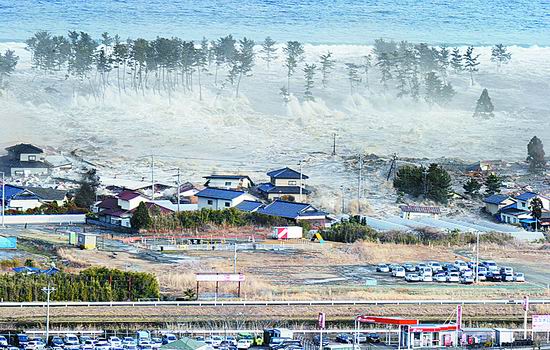This is Scientific American — 60-Second Science. I'm Christopher Intagliata.
The massive earthquake that rocked Japan in March 2011 took thousands of lives. It sent tsunami waves more than a hundred feet high towards northern Japan, where they battered the Fukushima Daiichi nuclear plant—and swallowed up whole swaths of coastline.
"Large amounts of villages and towns and cities washed into the ocean." Jim Carlton, a marine ecologist at Williams College. "Huge amounts of infrastructure, fisheries facilities, aquaculture. From children's toys, to fisheries baskets, to many vessels, buoys, containers, everything one can imagine."
Time and ocean currents have delivered hundreds of those objects to U.S. shores. Along with the stuff living in and on them: mussels, anemones, barnacles, crustaceans, worms—even a few fish, caught swimming in boats. Carlton and his team have now recovered more than 600 pieces of that debris, with the help of a huge network of scientists and citizen volunteers, and catalogued the hitchhiking Japanese species. The full manifest—289 species in all—is listed in a report in the journal Science.

While it's hard not to admire their tenacity, some of these transplants could pose a danger to local species: "It's really ecological roulette. It's really a matter of any number of species which have no prior history at all of becoming nuisance species, becoming invasive."
And as we clutter our coastlines with more and more development, and the ocean rips it away—as happened to Texas and Florida this month—Carlton says we can expect more of these ecological experiments, tsunami or not.
Thanks for listening for Scientific American — 60-Second Science Science. I'm Christopher Intagliata.













